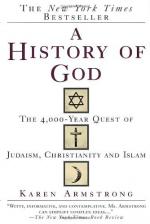|
This section contains 630 words (approx. 2 pages at 400 words per page) |

|
Enlightenment Summary and Analysis
Karen Armstrong begins this chapter with an overview of the effect that the technical and industrial revolution, occurring in the West, had on the beliefs of the three monotheistic religions. By the end of the seventeenth century, there was a widespread belief among most modern societies that humankind could exert control over the natural world and replace the old sanctities with fresh and new ideas. Advances in Western science led to a reexamination of the Christian religion and even to questioning the existence of God. In Europe, scientists such as Blaise Pascal and Renee Descartes, published their own theories as to the meaning and role of God in modern life, while, in England, the physicist Isaac Newton extended his opus magnus "Philosophiae Natruralis Principia" to prove God's existence. The new religion of Deism became known as "The Enlightenment," when Voltaire defined...
(read more from the Enlightenment Summary)
|
This section contains 630 words (approx. 2 pages at 400 words per page) |

|




